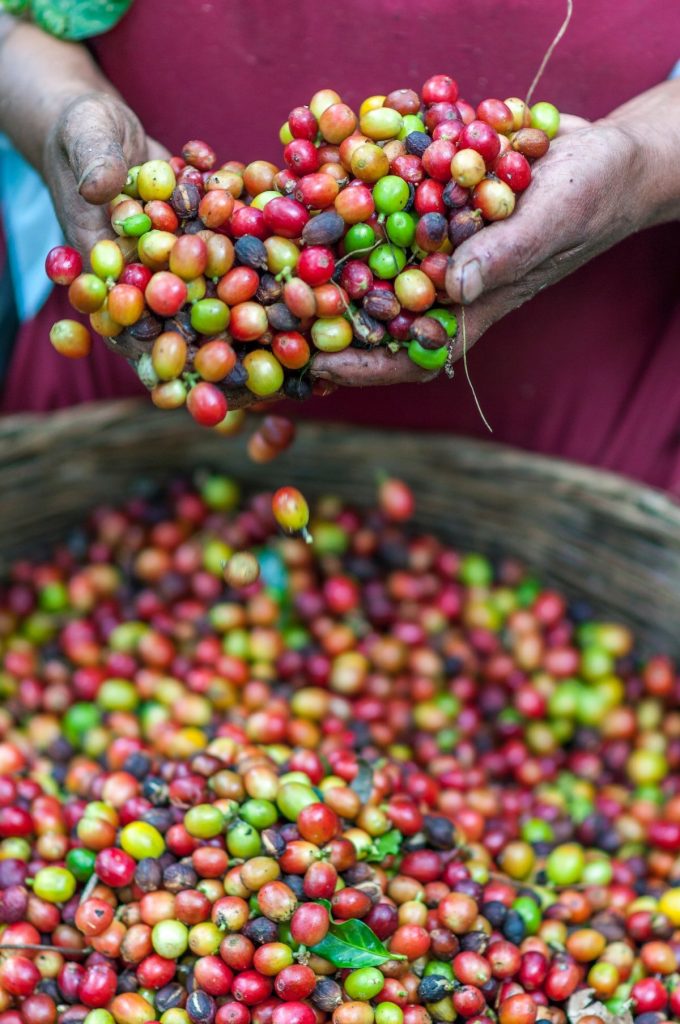THE STORY BEHIND ETHICAL PRODUCTION THREE LOCAL SUSTAINABLE BRANDS

Coffee and cocoa beans, from being delicacies enjoyed by natives of the southern world, to being goods which colonizers extracted and profited from, has a long history tainted by greed and aggression. Today, its history repeats in the form of Modern Slavery.
The founders of Cacao, Conspiracy Chocolate and Impact Berry, as chocolate-lovers and coffee-lovers, put extra care into every link of the supply chain. The business models they created not only respond to consumer demand for ethical, sustainable products, but also gives back to farmers and producers, breaking the cycle of exploitation.
CONSPIRACY CHOCOLATE:INSISTENCE ON QUALITY AND ETHICS
Driven by her love of chocolate, the founder of Conspiracy Chocolate, Celine Herren’s quest for cocoa of a rare quality brought her to small farms in the Đắk Lắk Province of Vietnam, where she built a mutually respectful, symbiotic relationship with farmers.
While large companies require consistency in their products, artisan chocolatiers want the opposite. Conspiracy Chocolate partners with small farms and uses single-source cocoa beans, whose quality depends on the atmospheric factors, such as humidity and sunshine, and the care that farmers give them. “Farmers are key to the chocolate-making process.”
Large brands monopolize the market and buy the largest possible quantity of cocoa beans at the lowest possible prices. In this race to the bottom, small farmers lack bargaining power and earn meagre incomes for their sweat and toil. The farmers that partner with Conspiracy Chocolate produce such a small quantity that they cannot even obtain Fair Trade certification, but their cocoa beans are of exceptional quality. Celine visits the farms to learn about the crops, from the genes and health of cocoa trees to how the beans are fermented and dried, and collects information to increase the transparency of the supply chain. The equal relationship between farmers and producer ensure the cocoa beans’ high quality.
The renaissance of artisanship testifies to the fact that people are no longer content with characterless, standardized, mass-produced goods. With a reverence for nature, artisanal chocolatiers attach special importance to the role farmers play, resulting in ethical, quality production.
CACAO: GUILT-FREE CHOCOLATE
“Obviously slavery is unequivocally unacceptable, but we really love chocolate. The solution was to make our own.” The founder of Cacao, a local Hong Kong luxury chocolate brand, Carolyn noticed that the mainstream chocolate industry has been long been criticized for using child labour. Left with no choice as a consumer, she began making her own chocolate. Made with conscience and love, her chocolate tasted better than its mainstream counterparts, so she decided to market it and share it with the public.
Cacao chocolate is “guilt-free”, which means it is produced without the taint of human trafficking or deforestation. Carolyn searched far and wide for the right sources and vendors. The chocolate is made with sustainably grown cocoa and sugar, the packaging is plastic-free and recyclable, and the deliveries are made by a carbon-neutral company with electric vehicles.
Increasing numbers of consumers are realizing that their purchasing choices are votes for what kind of future society they want. Passionate about fighting human trafficking, Carolyn enjoys interacting with customerss in chocolate-tasting workshops, raising ethical consumer awareness while sharing rich, delicious chocolate. Customers are guided through chocolate-tasting and informed about the issue of slavery in the production of cocoa.
Carolyn enjoys having face-to-face conversations about Modern Slavery and Ethical Consumerism. Workers and the environment often end up paying the real costs of cheap products. If our shopping is to be “guilt-free”, more people must become conscious of the problem of slavery in mainstream industries, vote with their dollars and incentivize companies to follow ethical standards, which will drive systemic change.
IMPACT BERRY:CREATING SHARED VALUE WITH COFFEE
Various forms of slavery continue to exist in unseen corners of the world. As consumers, we often do not know who produced our food, nor how many pay heavy costs in order to supply our food. Impact Berry was founded by Timo and Sonja, who were exploring ways to make life more meaningful. “We wanted to build a brand that cares deeply about how food is produced and who is producing it along the whole supply chain.”
Impact Berry is one of the key drivers of the idea of “Creating Shared Value”. When a tsunami hit Indonesia, although farmers survived, their livelihoods needed rebuilding. In 2018, Timo and Sonja visited the earthquake zones of Indonesia and were greatly impressed by the local communities there. They decided to produce and market coffee from these areas, supporting livelihoods in a sustainable way.
Coffee brings people together across borders. In addition to putting a lot of care into the production process and the quality of coffee, Impact Berry partners with local organizations to implement education and environmental protection programmes, giving back to coffee-growing communities. United by their love of coffee, people from different cultures and backgrounds come together to inspire each other and find endless new possibilities to make a difference.
A product supply chain is made up of many real human beings, whose lives can be greatly impacted by the choices of consumers. If consumers are aware of this fact and make each choice consciously, they can make a big difference in the world.
Ethical Production does not only create slavery-free brands, it bears witness to the power of kindness. A journey of a thousand miles begins with a single step. Small changes can have a ripple effect. The new business models created by brands like these can change the world for future generations.